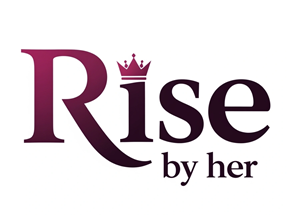In a world where leadership roles are still predominantly held by men, professional development planning is more than a good idea; it’s a powerful tool for women to close the gap. According to the 2023 McKinsey & Company Women in the Workplace report, only 1 in 4 C-suite leaders is a woman, and only 1 in 20 is a woman of color. The climb is steep but strategic planning gives women the structure and momentum needed to rise.
So, why do women need career goals and a plan? Because without one, it’s easy to get stuck in reactive roles, taking opportunities as they come rather than creating your own trajectory. A well-defined plan offers:
- Clarity: Know exactly where you’re heading in 1, 5, or 10 years.
- Confidence: Set milestones that remind you of your progress and worth.
- Advancement: Proactively pursue promotions, projects, or pivots instead of waiting for them.
And part of being yourself is knowing your value and planning a future that reflects it. Career planning doesn’t just support your ambition; it defends it.
Define Your Long-Term Vision and Career Goals
Before you can map out your career, you need a clear destination. Defining your long-term vision is one of the most empowering steps a woman professional can take. It not only helps you focus, but it also builds motivation and resilience when challenges arise.
Start with self-assessment:
- What are your strengths and natural talents?
- What topics, industries, or roles excite you?
- What kind of impact do you want to make?
Reflect on your passions and purpose, these are powerful guides when long-term planning. Ask yourself: Where do I see myself in 5 or 10 years, and why does that matter to me?
Once your vision is clear, break it down using the SMART goal framework:
- Specific: Define your exact goal (e.g., “become a marketing director at a tech firm”).
- Measurable: Include metrics for success (e.g., lead 3 major campaigns).
- Achievable: Align with your current skills and growth potential.
- Relevant: Make sure it aligns with your values and vision.
- Time-bound: Set a deadline (e.g., within 3 years).
To keep your vision top of mind:
- Create a career vision board with images, quotes, and milestones.
- Start a career journal to track goals, thoughts, and progress weekly.
These tools turn intention into action and action into advancement.
Identify Skills Gaps and Learning Opportunities
To grow into your dream role, you need to bridge the gap between where you are and where you want to be. That’s where skills development becomes a powerful strategy for ambitious women professionals.

Start with a personal skills audit
- Compare your current skills with the qualifications required for your target role.
- Use tools like LinkedIn job descriptions or career path maps to spot gaps.
- Ask mentors or peers for feedback on areas you could strengthen.
Explore high-impact upskilling options
- Online courses & certifications: Platforms like Coursera, edX, and LinkedIn Learning offer flexible programs in project management, data analysis, leadership, and more.
- Women-focused leadership programs: Consider offerings from organizations like She Leads, Women in Tech, or Elevate Network to grow your influence and voice.
- Short-term workshops: Many local business hubs or virtual conferences host skill-specific training (e.g., public speaking, negotiation, or financial literacy).
Tailor your learning to your industry
- Tech: Learn coding basics, cloud platforms, or product management.
- Business: Take certifications in digital marketing, finance, or business strategy.
- Healthcare: Explore courses in healthcare leadership, patient communication, or emerging technologies.
Investing in upskilling doesn’t just close gaps but also opens new doors, empowering ambitious women professionals to stay competitive, seize leadership opportunities, and build long-term career resilience.
Build a Powerful Support Network
No ambitious woman climbs the ladder alone. One of the most powerful accelerators for career growth is building a supportive professional network that uplifts, guides, and opens doors.
Why mentorship and sponsorship matter
- Mentors provide advice, perspective, and encouragement. They help you navigate challenges and grow with confidence.
- Sponsors, on the other hand, actively advocate for you in rooms you’re not in, recommending you for leadership roles, high-impact projects, or promotions.
Where to find your network
- Women’s professional networks: Join groups like Ellevate Network, Lean In Circles, Women in Tech, or industry-specific communities.
- Social platforms: Use LinkedIn to connect with women leaders in your field. Don’t hesitate to message someone whose career path you admire.
- Conferences & webinars: Attend both virtual and local events to meet like-minded professionals and potential mentors.
Pro tips for meaningful connections
- Be proactive: Reach out to introduce yourself, ask thoughtful questions, and follow up.
- Give as much as you take: Share resources, ideas, and support.
- Collaborate on projects or join committees to strengthen bonds and boost your visibility.
Investing in upskilling doesn’t just close gaps but also opens new doors. When women commit to growth, they unlock confidence, opportunities, and lasting career success
Create an Actionable Career Roadmap
A dream career needs more than inspiration, it needs a clear action plan. For ambitious women professionals, turning vision into reality starts with a structured roadmap that outlines your next steps.

Break it down to build it up
- Quarterly milestones: Divide long-term goals into manageable phases, whether it’s earning a new certification, expanding your network, or applying for leadership roles.
- Monthly check-ins: Reflect on wins and roadblocks to stay aligned with your goals.
- Weekly tasks: Keep momentum by scheduling small, actionable steps.
Tools to stay organized
- Career planners or printable templates
- Goal-tracking apps like Notion, Trello, or Asana
- Journals for self-reflection and progress tracking
Accountability is key
- Share your goals with a mentor or peer group for motivation.
- Set reminders and deadlines to stay on track.
- Celebrate wins, no matter how small, they build confidence and forward momentum.
Creating a personalized, actionable roadmap not only boosts focus; it gives you the clarity to lead with intention and purpose, the confidence to tackle challenges head-on, and the vision to turn long-term goals into achievable milestones.
Measure Progress and Adjust Your Plan
Career development isn’t a straight line; it’s a journey with wins, lessons, and pivots. Tracking your progress helps you stay focused, motivated, and aligned with what truly matters.
Celebrate wins and reflect on setbacks
- Recognize achievements: Whether it’s completing a course, landing a new role, or speaking at an event: celebrate it.
- Review regularly: Monthly or quarterly check-ins help you spot patterns and course-correct early.
Know when to pivot
- Are your goals still aligned with your values and ambitions?
- Has your industry shifted or opened new opportunities?
- Adjust timelines, priorities, or even goals as needed flexibility is a strength, not a flaw.
Build resilience into your journey
- Track your growth with tools like reflection journals or progress dashboards.
- Practice self-compassion when setbacks happen they’re part of progress.
- Stay curious and open to new paths that emerge.
A career plan should evolve with you. By tracking and adjusting, you’ll build a career that fits not just your skills, but your story, your values, and the vision you have for the life you want to create.
Bonus Tools: Resources to Help Women Thrive
To help you stay on track with your professional development plan, here are some resources designed specifically for women looking to advance and lead. These tools will guide, inspire, and empower you as you take control of your professional journey.
Recommended Books
- “Lean In: Women, Work, and the Will to Lead” by Sheryl Sandberg: A must-read for any woman looking to break barriers in the workplace, this book provides valuable insights on leadership, confidence, and career growth.
- “The Confidence Code” by Katty Kay and Claire Shipman: Focused on boosting self-confidence, this book explores how women can cultivate the courage to go after bigger opportunities.
Podcasts to Follow
- “The Female Lead” by Edwina Dunn: A podcast dedicated to inspiring stories of women from all walks of life who have overcome challenges to thrive in leadership roles.
- “The Career Contessa Podcast”: Provides actionable career advice, career planning tips, and expert insights on navigating work-life balance and breaking through the glass ceiling.
Career Development Apps
- Evernote: An excellent tool for organizing career goals, planning, and tracking progress. It helps keep everything in one place, whether it’s job applications or networking contacts.
- LinkedIn Learning: A fantastic resource for courses in leadership, technical skills, and personal growth, helping women continuously build new capabilities.
By incorporating these resources into your professional development journey, you’ll have the support and tools you need to keep progressing toward your leadership aspirations.
Conclusion
In conclusion, creating a structured and actionable professional development plan is a game-changer for ambitious women professionals. By setting clear long-term goals, identifying skill gaps, building a strong support network, and tracking progress, you can accelerate your career and achieve leadership success. Remember, every step you take, from leveraging resources to seeking mentorship, will help you navigate the professional landscape with confidence and resilience.
Ready to take your career to the next level? Subscribe to our newsletter for ongoing tips, tools, and resources to empower your career journey.


